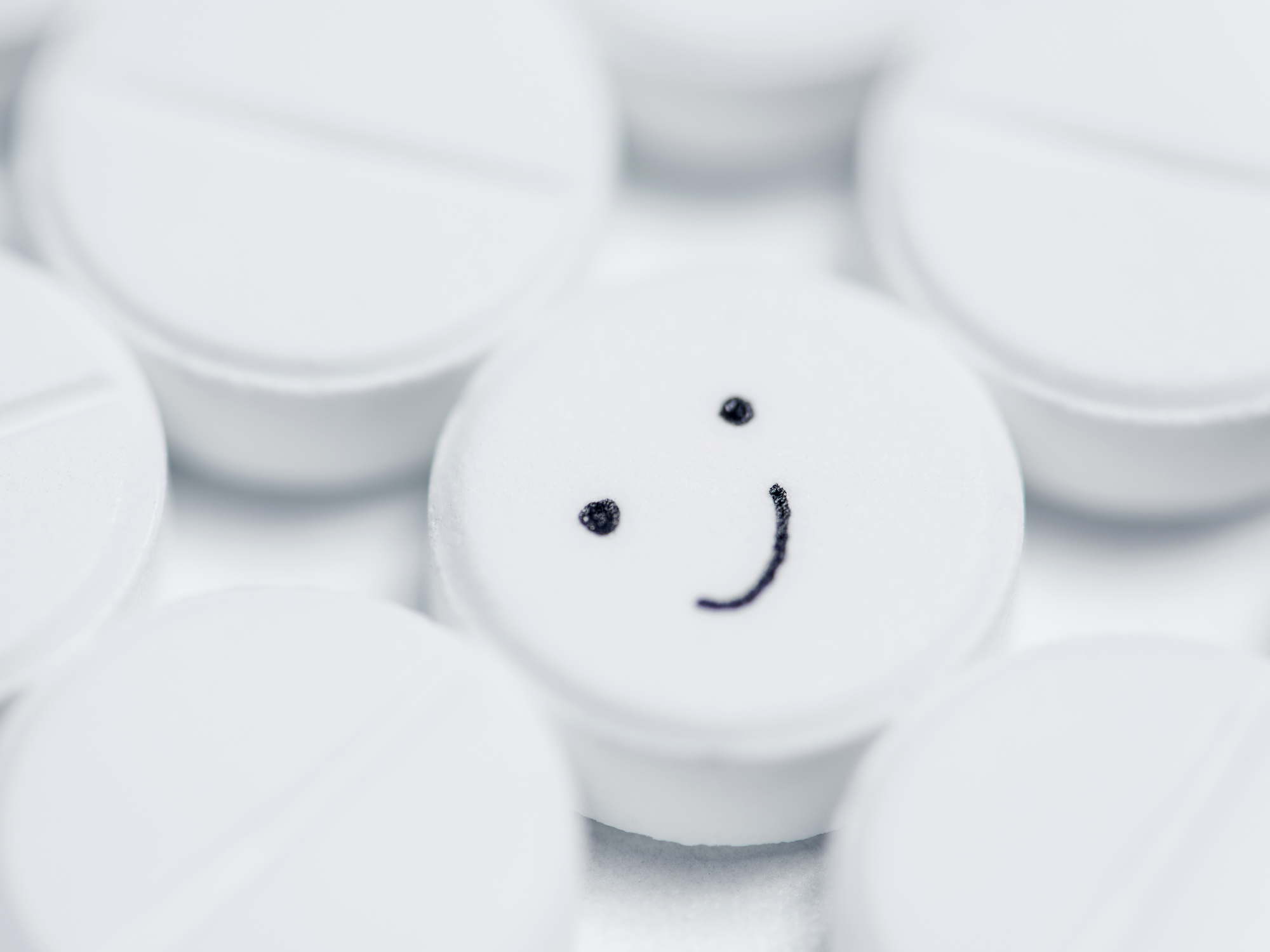Get Easy Health Digest™ in your inbox and don’t miss a thing when you subscribe today. Plus, get the free bonus report, Mother Nature’s Tips, Tricks and Remedies for Cholesterol, Blood Pressure & Blood Sugar as my way of saying welcome to the community!
The simple mineral that could replace anti-depressants

If you’ve ever sought professional help for depression, then you’ve likely walked away with a prescription for a specific type of drug — selective serotonin reuptake inhibitors (SSRIs).
SSRIs are the most widely used treatment for depression. Even if you’ve never taken them, you probably recognize popular brand names like Prozac, Paxil, Zoloft and Lexapro from commercials.
Unfortunately, these pervasive pills leave much to be desired…
When SSRIs first came out, doctors thought they were 80 to 90 percent effective at treating depression and certain anxiety disorders, so they began passing them out like candy.
But it turns out that prescription drug companies manipulated those initial statistics. They’d concealed studies with negative results to sell more drugs and make more money.
Over the years, we’ve learned that SSRIs are only 33 percent effective. That’s about the same as a placebo pill.
Of course, SSRIs have more side effects than a placebo — like insomnia, skin rashes, headaches, joint and muscle pain, stomach upset, nausea, diarrhea, internal bleeding, low sex drive, tics, muscle spasms, repetitive muscle movement and compulsive restlessness.
So SSRIs aren’t effective. And with that long list of side effects, it’s a wonder anyone is still taking them.
The problem is, most people don’t know how else to treat their depression. But a common mineral could save the day for depression sufferers everywhere.
In fact, a recent study suggests this mineral may be effective enough to step in and steal the crown away from SSRIS as the go-to treatment for depression…
Magnesium diminishes depression
In one of the first clinical trials to study the effect of magnesium on depressed people, researchers from the University of Vermont found that magnesium supplements could be an effective treatment for depression.
The study included 126 adults with mild to moderate depression. After six weeks of taking 248 milligrams of elemental magnesium per day, many of them showed a significant improvement in their depression and anxiety symptoms.
Even more exciting, an improvement in mood occurred within just a few weeks. Many experienced a positive difference within two weeks. And barely anyone experienced adverse side effects either. Only one person had nausea and lethargy that was significant enough to stop taking the supplement.
“The results are very encouraging, given the great need for additional treatment options for depression, and our finding that magnesium supplementation provides a safe, fast and inexpensive approach to controlling depressive symptoms,” said Emily Tarleton, MS, RD, CD, a graduate student in Clinical and Translational Science and the bionutrition research manager in the University of Vermont’s Clinical Research Center.
Now, researchers don’t know precisely why magnesium does the trick for depression, but they have a few theories…
One theory relates to how magnesium affects your brain chemicals — particularly serotonin. Low magnesium levels have been shown to reduce your brain’s production of serotonin. And, as you probably know, low serotonin levels are thought to be one of the primary culprits behind depression.
Inflammation may have something to do with it as well. Studies show that magnesium fights inflammation, and inflammation has been tied to depression in previous studies.
Should you take more magnesium?
Now, if you’re thinking about changing the way you treat your depression, it’s a good idea to partner with a trusted healthcare professional first. Depression is a serious disease, so you don’t want to take these changes lightly. It helps to have a health expert available to guide you as you get your treatment approach right.
When it comes to using magnesium to treat your depression, it’s generally pretty safe. You can even take it while you’re still taking your SSRI antidepressants.
Avoid magnesium salicylate and magnesium sulfate, because they may cause an adverse reaction with certain SSRIs. Your body tends to absorb magnesium citrate best anyway, so look for that.
You can take up to 400 mg per day. And, who knows? Maybe magnesium is the missing link in your depression treatment plan — and you could experience other magnesium-related benefits as well.
Editor’s note: Did you know that when you take your body from acid to alkaline you can boost your energy, lose weight, soothe digestion, avoid illness and achieve wellness? Click here to discover The Alkaline Secret to Ultimate Vitality and revive your life today!
Sources:
- “Five Reasons Not to Take SSRIs.” — Psychology Today. Retrieved June 29, 2017.
- “What are the real risks of antidepressants?” — Harvard Health Publications. Retrieved June 29, 2017.
- “With health care cuts looming, low-cost magnesium a welcome option for treating depression.” — MedicalXpress. Retrieved June 29, 2017.
- K. Tarleton, et al. “Role of magnesium supplementation in the treatment of depression: A randomized clinical trial.” — PLoS ONE, 2017.
- “Magnesium: Fact Sheet for Health Professionals.” — National Institutes of Health. Retrieved June 29, 2017.
- “Can You Take Magnesium With Lexapro?” — Livestrong.com. Retrieved June 29, 2017.
- “Magnesium.” — Whole Health Chicago. Retrieved June 29, 2017.















